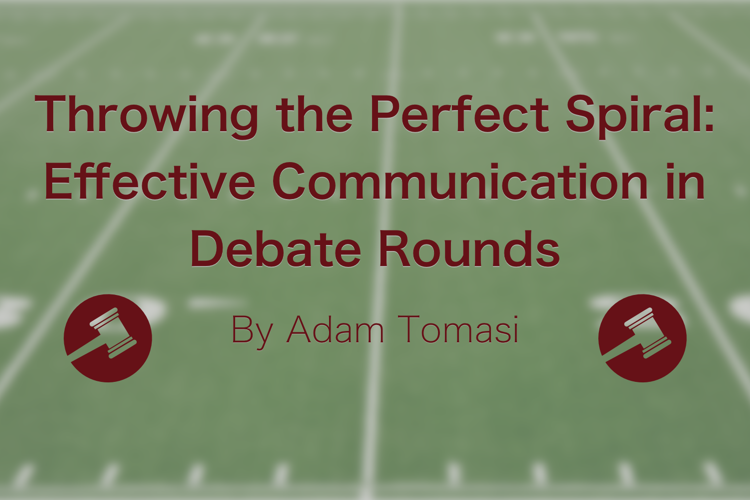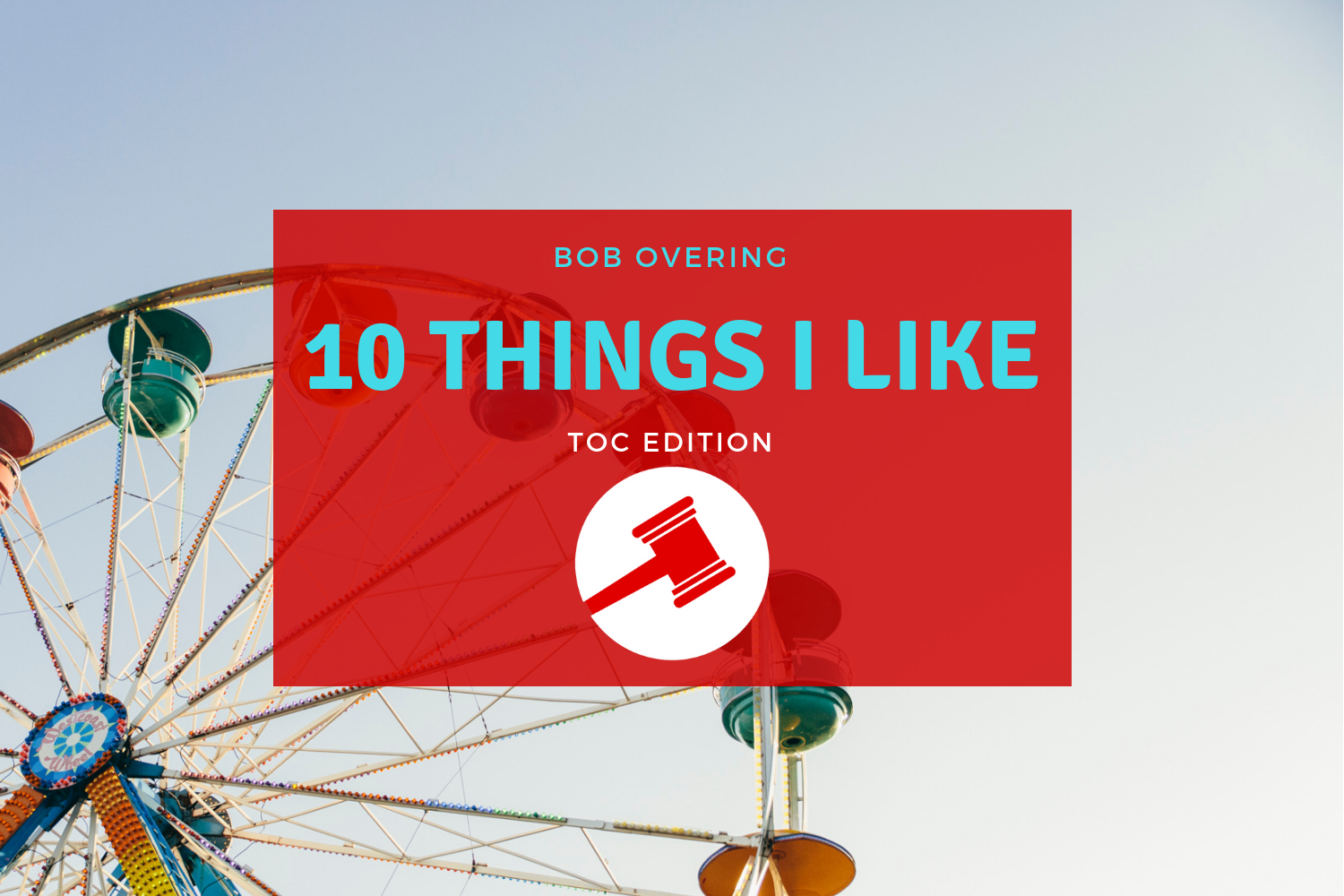Throwing the Perfect Spiral (Adam Tomasi)

Effective Communication in Debate Rounds by Adam Tomasi
Introduction
Debate is, at its core, a communicative activity. As such, debaters should understand what it takes to be an effective communicator. Consider the following analogy for effective communication:
Suppose you’re passing a football. The football is your strategy; the person receiving your pass is your judge. There’s nothing flawed, in itself, with the football you have in your hands; everything now comes down to execution. Your ultimate goal is to throw the perfect spiral.
If you throw the ball too hard, it’ll go way too far over the judge’s head and they can’t catch it. If you throw the ball too lightly, however, the judge will either run towards it or let it fall before it reaches them.
Throwing the football too hard is akin to pursuing an explanation of the debate that is so convoluted that a judge will misinterpret you or not understand you at all. Throwing the football too lightly is akin to making the debate too close for comfort; the judge will either do more work to resolve the debate (putting in more effort to catch a ball thrown in an odd direction) or suspend judgment on what they see as a “wash” (letting the ball fall before it reaches them).
I believe that debaters should care about how they speak and present themselves in debates, even at a national circuit level. Speed drills are important, but the goal of an effective communicator is to achieve more than clarity; debaters should learn to speak persuasively while speaking quickly.
My vision of an effective communicator is someone who can effectively read what their audience is feeling, speak with purpose, and establish presence. I’ll outline here what each of these mean and what it takes to be able to do this:
Effectively reading the audience
Reading your judge requires more than reading their paradigm. You need to get inside the mind of your judge and the perspective that they bring to debate to achieve maximum persuasion. You want to be flexible to how your judge sees debate and try to act through that perspective.
While I was by no measure perfect at any of this, here are some personal examples from when I debated LD in high school:
If I had a traditional judge, I would try to interpret the entire debate from a common sense perspective, combining sound logic with passion, applying humor when applicable.
If I had a policy judge, I would significantly boost my speed and technical game, reading lots of cards and cleverly applying them to the rest of the debate. I would also implicitly demonstrate my knowledge of policy debate through how I executed arguments with proper jargon (“try or die”, “perm shields the link,” etc.)
If I had a philosophy judge, I would engage in positional debating and invite clash. I would center virtually all of my arguments on, for example, an application of Kantianism or Philip Pettit’s view of freedom as non-domination, and engage in the arguments’ complexities.
If I had a K judge, I would assume the perspective of a K debater and interpret arguments differently; my debating would be from the perspective of an “outsider looking in” and my responses to arguments would go a meta-level above the norm.
If I had a theory judge…well, I didn’t really pref these very often.
The general rule here is being able to understand where people are coming from. That’s fundamental to persuasion—the ability to attend to what your audience is feeling and think the way they do. That way, you and your judge will be on the same page, making it likelier that they vote for you.
Speaking with purpose
To me, speaking with purpose means sounding like everything you’ve said in the speech was a valid use of your time. Your speeches shouldn’t sound like you’re nervously extending arguments; rather, everything you say in a debate should appear to the judge as deliberate and thought-out.
Even if you’re coming up with an analytic on the fly, it should appear as if you already had the idea. If you practice this enough, making sure to notice in your rebuttal redoes if you sound deliberate, your extemped analytics will become so concise and well-said that you might as well have been reading them.
Even if you aren’t fully confident in an argument, say it with a straight face and no hesitation. Part of persuasion comes with being resolute. Even if you, privately, aren’t fully sure that your argument is good, if you act as though it’s the best argument ever, your judge might agree! Think of it like serious trolling; after the debate you might think to yourself, “Wow, I can’t believe the judge actually thought that was a good argument” when they don’t know you think the argument is bad.
Establishing presence
If you can, you should stand up for your speeches. If you were giving a speech to a large crowd or at a business meeting, you hopefully wouldn’t be sitting down the whole time. Standing up with good posture conveys its own form of confidence, that of presence. Establishing presence means implicitly conveying to the judge that you’ve got something important to say, that your opponent missed the point, and that you’re a badass.
Through establishing presence, you can convey all three of those things without sounding arrogant. What you convey, instead of arrogance, is determination to win the debate. You don’t establish presence by calling your opponent’s arguments “dumb” or “stupid”. I’ve had some debates way back in the day where I was too arrogant for my own good, and I tried my best to avoid that my senior year of high school and now my freshman year of college debate.
Conclusion
Even with this advice in mind, remember that nobody is perfect. To resume the football analogy, even my favorite quarterback, Tom Brady, throws incomplete passes (cue the #deflategate flame war).
Not being hard on yourself is essential to improving your communication skills in debate rounds. If debate strategy is fun to you, you’ll be dying to execute it well in front of your judges. From there, you’ll develop an ability to speak both quickly and effectively, winning more and more debates as you go!
Adam Tomasi is a member of the Premier Debate faculty. He debated for Sacred Heart High School (MA) and cleared at the Tournament of Champions his sophomore, junior and senior years. Adam earned Top Speaker awards at Collegiate, Yale, Bronx and its RR, Hendrick Hudson, the Sunvitational RR, and Harvard. He currently does policy debate for Wake Forest.




